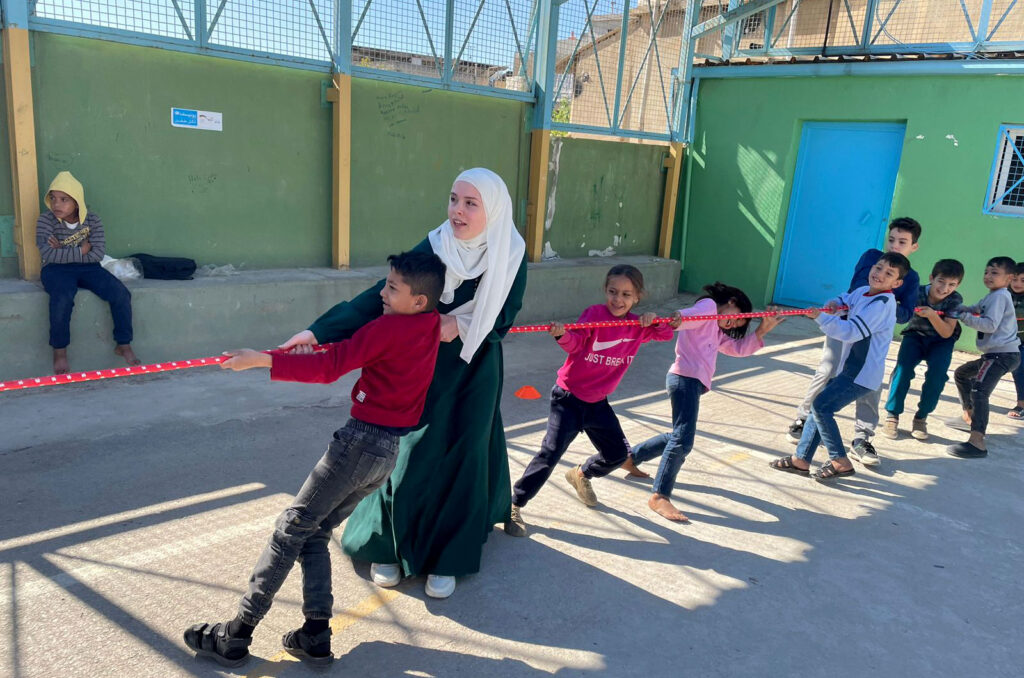Jul, 2021
Online learning facilitated by electronic tablets allows students to continue their education
Many children in Lebanon have not attended school in person in 18 months, since October 2019, due to the protests and civil unrest, the economic crisis and the COVID-19 pandemic. According to a report by Save the Children, “At least 1.2 million children across Lebanon have had their education disrupted for more than one year... impacting Lebanese, Syrian and Palestinian children alike.”
The Beirut port explosion was the final blow that literally blew up multiple schools in the capital. Anera’s team in Lebanon has been working day and night to secure resources and provide support to schools and educational centers that have been affected by Lebanon’s cascading crises.
Krikor Akmakjian, educational director of the Armenian Central High School, says,
“Just like last year, we are still facing an educational crisis, in addition to the economic and health crisis in Lebanon. Due to the coronavirus pandemic, we stopped traditional schooling and were forced to resort to online teaching, which is problematic in Lebanon.
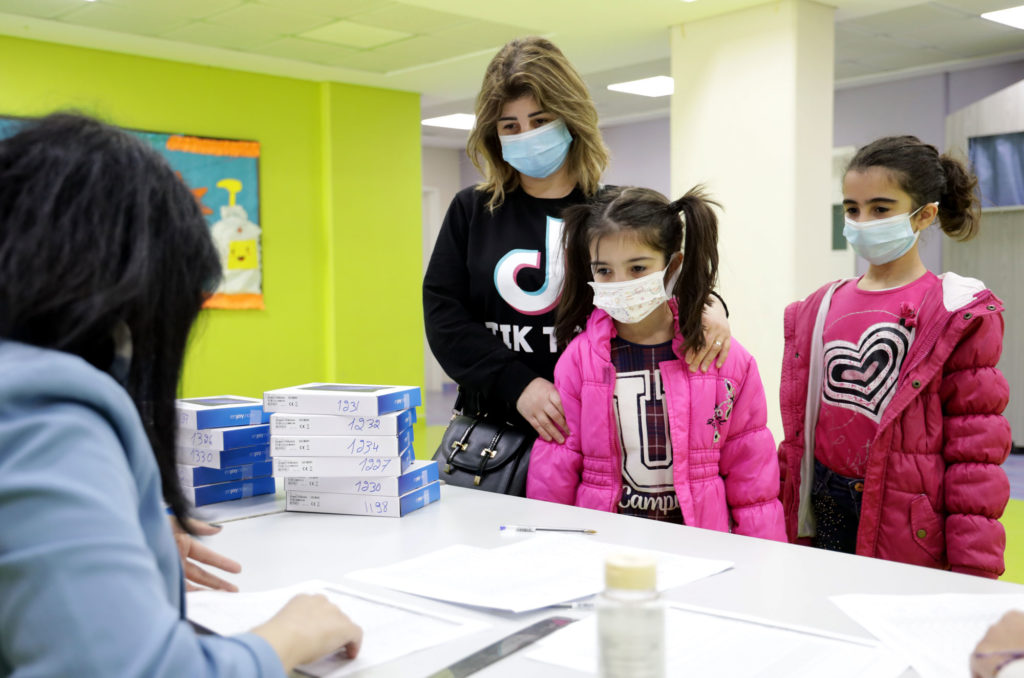

"Apart from the constant power cuts and poor internet connection, there are so many families who cannot afford to purchase laptops for their children! How will they learn remotely?”


“There are so many families who cannot afford to purchase laptops for their children! How will they learn remotely?”
The Ohrstrom Foundation, one of Anera’s partners, was among the many donors who reached out to offer help, providing funds to deliver help where it’s needed most.
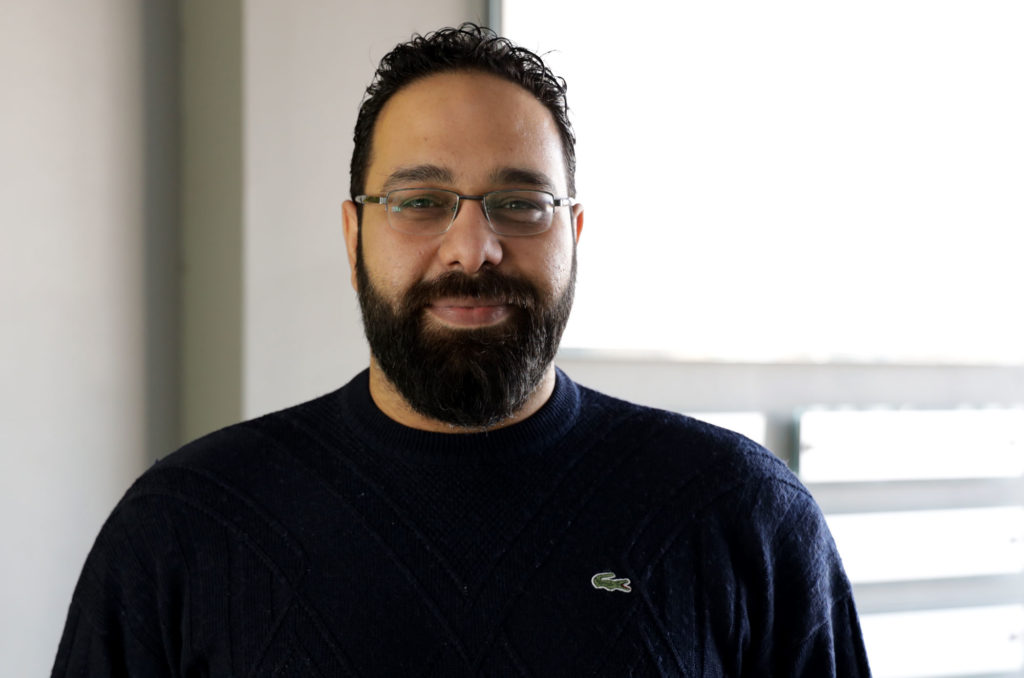

The foundation gave Anera a $50,000 grant to help two non-profit schools that were damaged by the blast, but remained standing: Al Wardieh school (The Rosary School), which hosts 850 students, and Al Markazieh School (The Central Armenian School), with its 550 students. Both schools are in Burj Hammoud, an Armenian municipality originally founded as an Armenian refugee camp.
After assessing the schools’ needs, Anera purchased electronic tablets for the students and laptops for the teachers to help the schools run their classes online. We also purchased and delivered school kits, which include supplies like notebooks, bags, pens and pencils. Given the pandemic, we also distributed hygiene kits that included face masks, sanitizer and cleaning products for students’ families.
Akmakjian says, “I want to thank Anera and Ohrstrom Foundation for providing these tablets for our students. We had no other solution! Your support will allow all our students to continue with their learning journey.”
Online learning is a rather new phenomenon in Lebanon. Before the crisis, only some private schools made use of the internet to deliver classes or share information and assignments. For other schools and their students, the abrupt transition came in a matter of days — right after the first official COVID lockdown. Since then, between COVID-19 and the roadblocks erected to hamper demonstrators, it has been difficult for parents to ensure the safety of their children while sending them to school.
Harout is the father of Precilla, a student in the 3rd grade at the school. He says,
“The main difficulties of online learning are the constant power blackouts and the constantly poor internet connection, which makes it extremely difficult for students to focus. Having the tablet made homeschooling much easier on all of us! Before getting her tablet, Precilla used her mother’s phone with a much smaller screen to study.
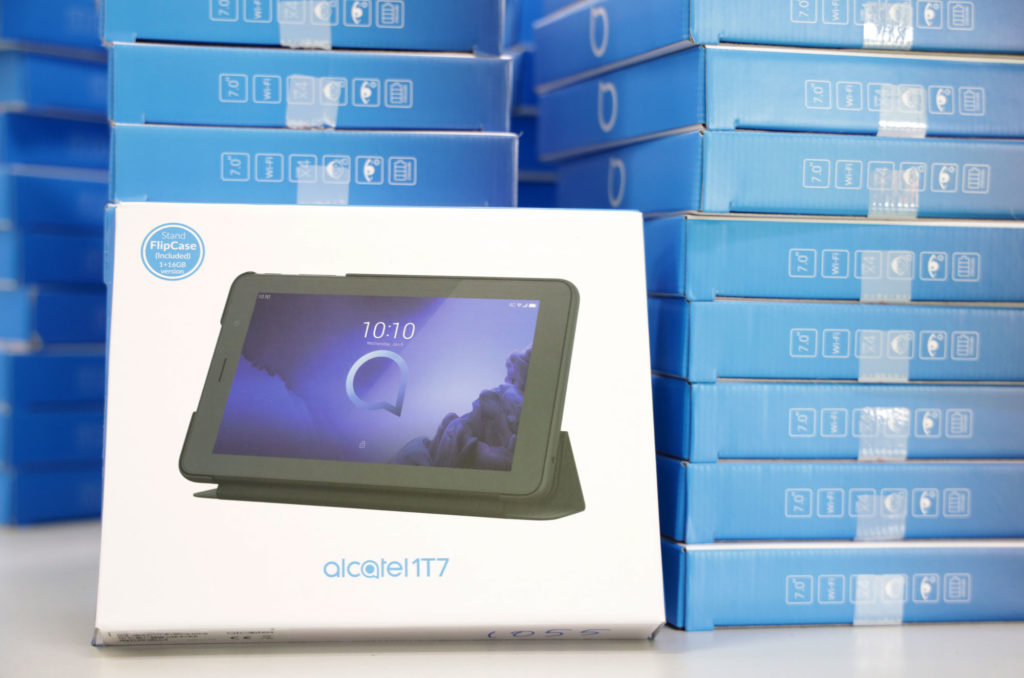

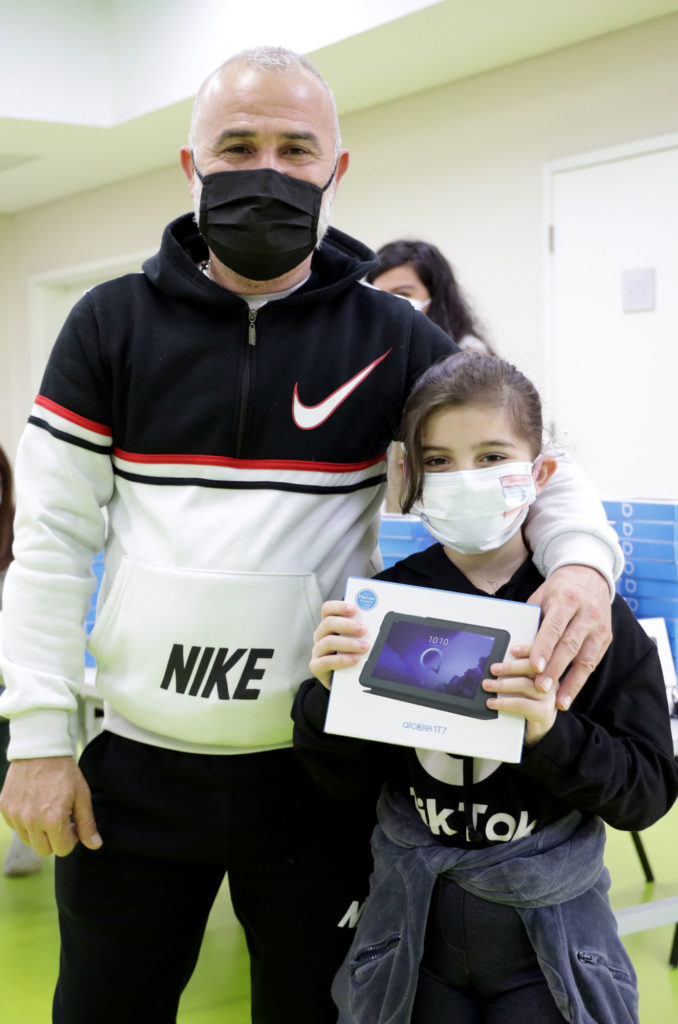



“Having the tablet made homeschooling much easier on all of us!”
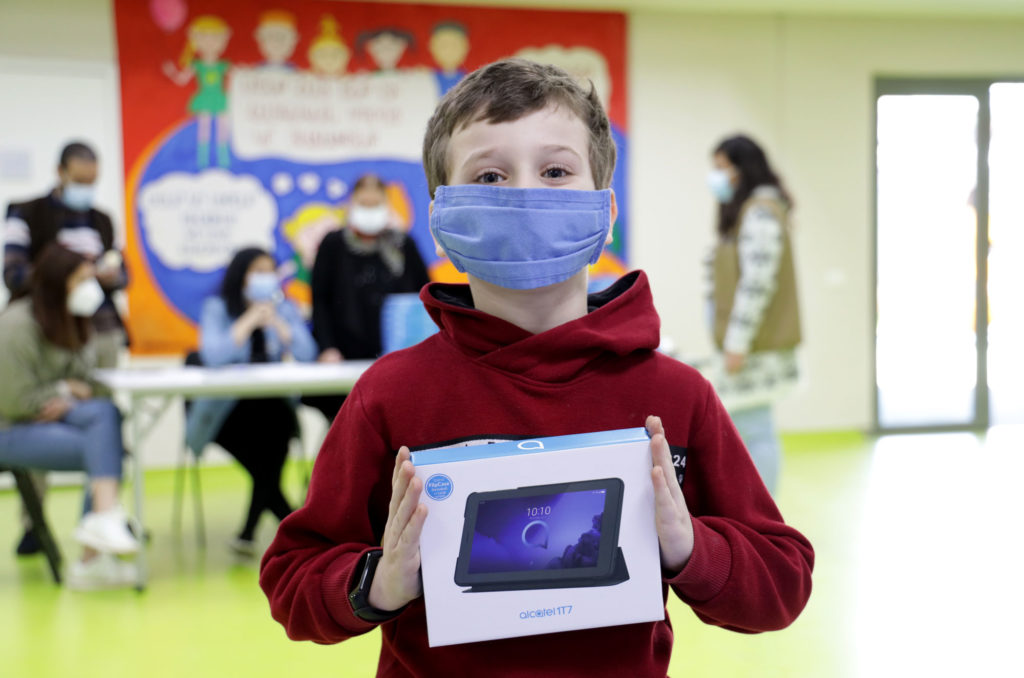



"Now that I have my own tablet I can use it for school without being interrupted by phone calls."
Precilla says, “The tablet is very helpful! It is much bigger, faster and better. But I hope that we will go back to school soon so I can be with my friends. I miss them and it is definitely better than learning online.”
Precilla was not the only one using her mother’s phone. Most students depended on a family member’s mobile screen to study. She and fellow classmates were thrilled with their new tablets so they won’t have to take their lessons on tiny screens and interrupt their learning every time their parents receive calls.
Nareg, 10, is one of Precilla’s classmates. He doesn't seem to mind not going to school but he does like to study.
“I love my online courses so much, but the internet gets very annoying and I have to use my mom's phone. Now that I have my own tablet I can use it for school without being interrupted by phone calls. Thank you.”

